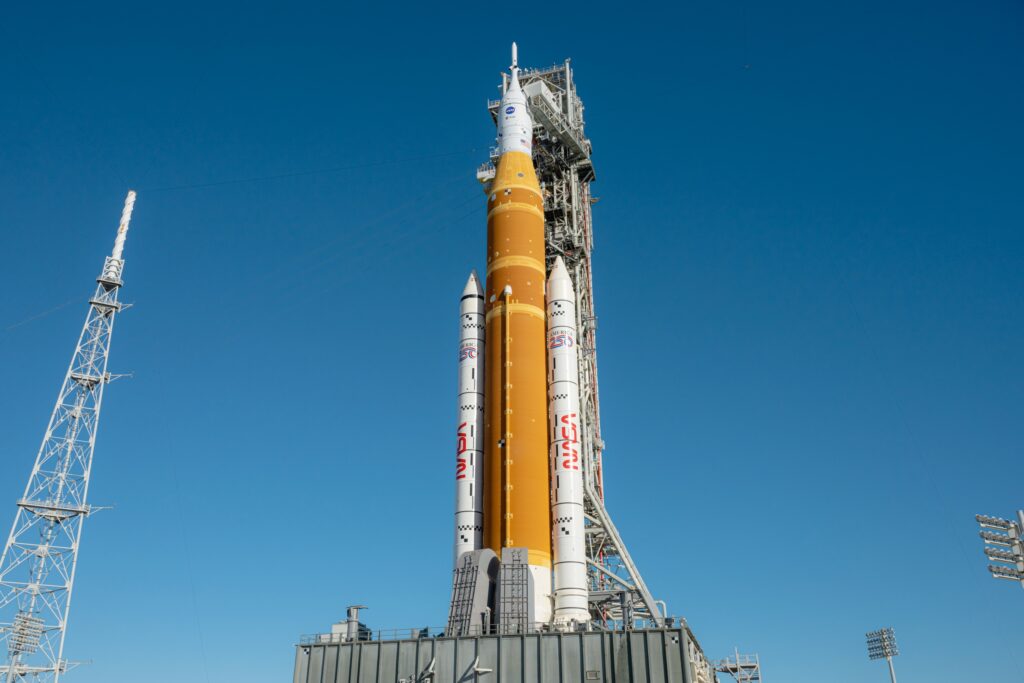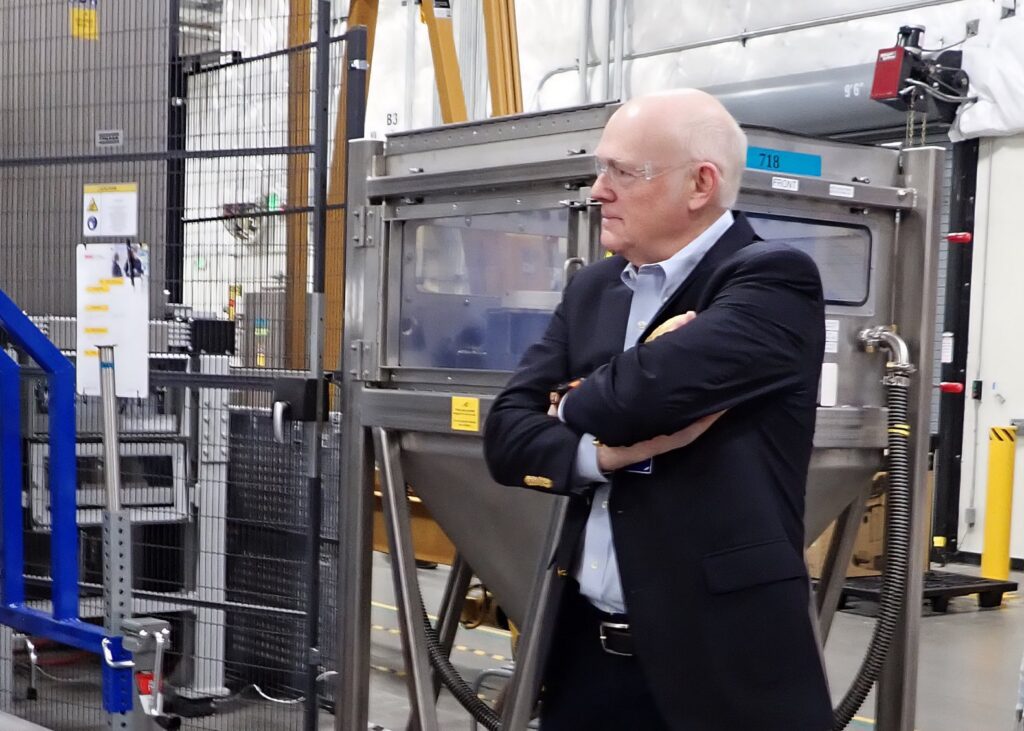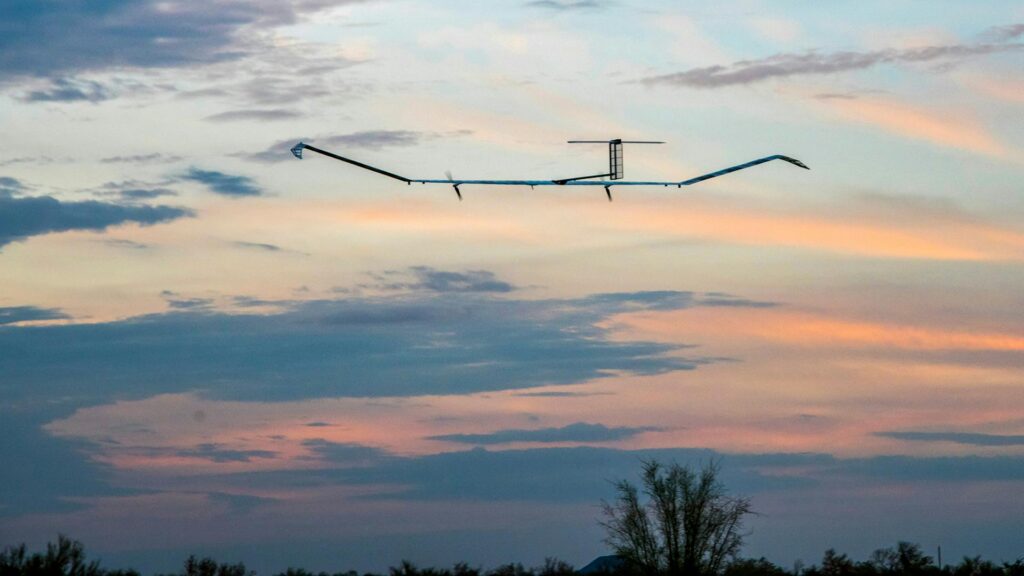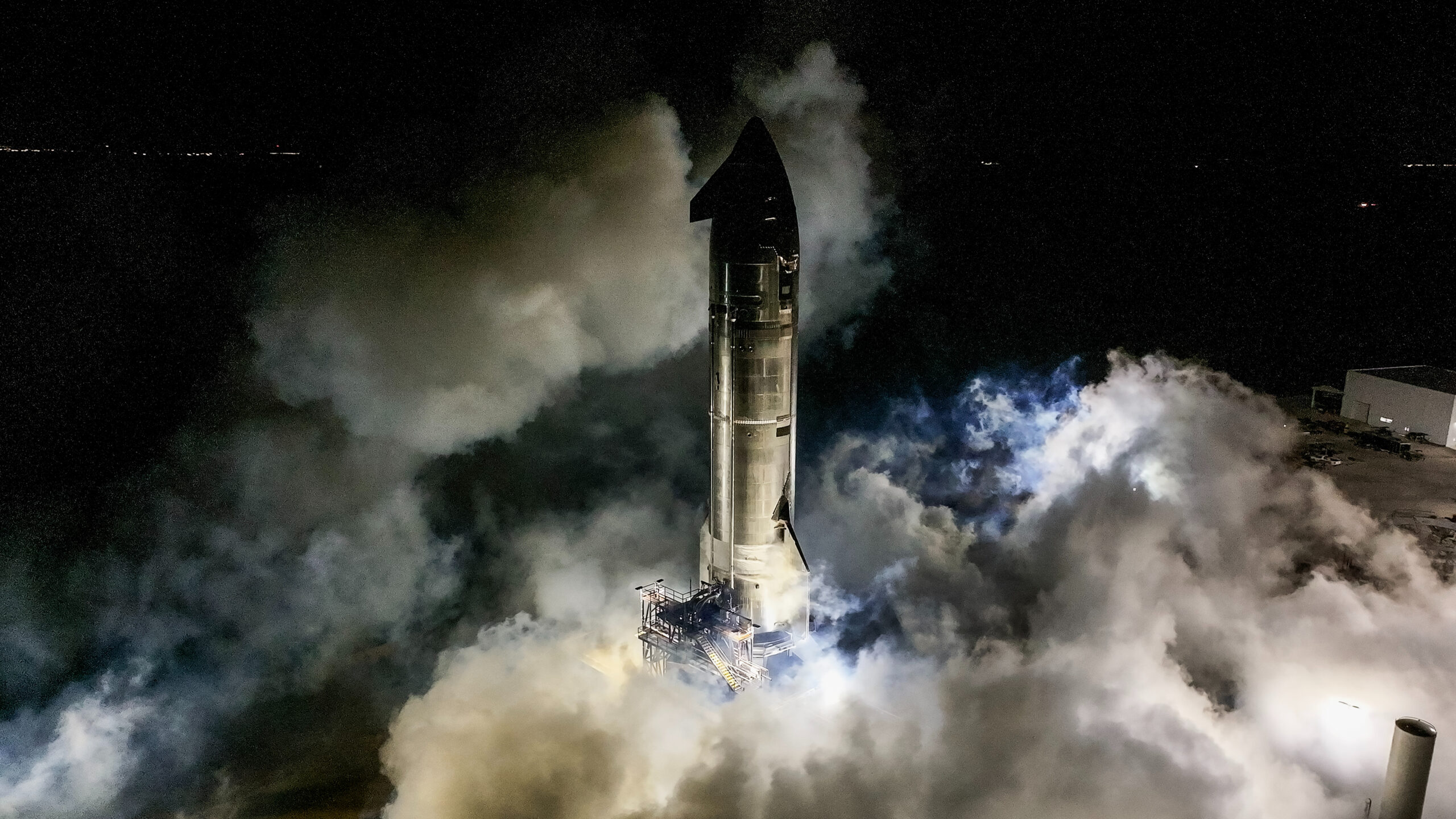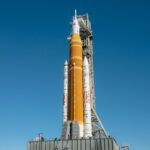Now Reading: White House budget proposal would phase out SLS and Orion, scale back ISS operations
-
01
White House budget proposal would phase out SLS and Orion, scale back ISS operations
White House budget proposal would phase out SLS and Orion, scale back ISS operations
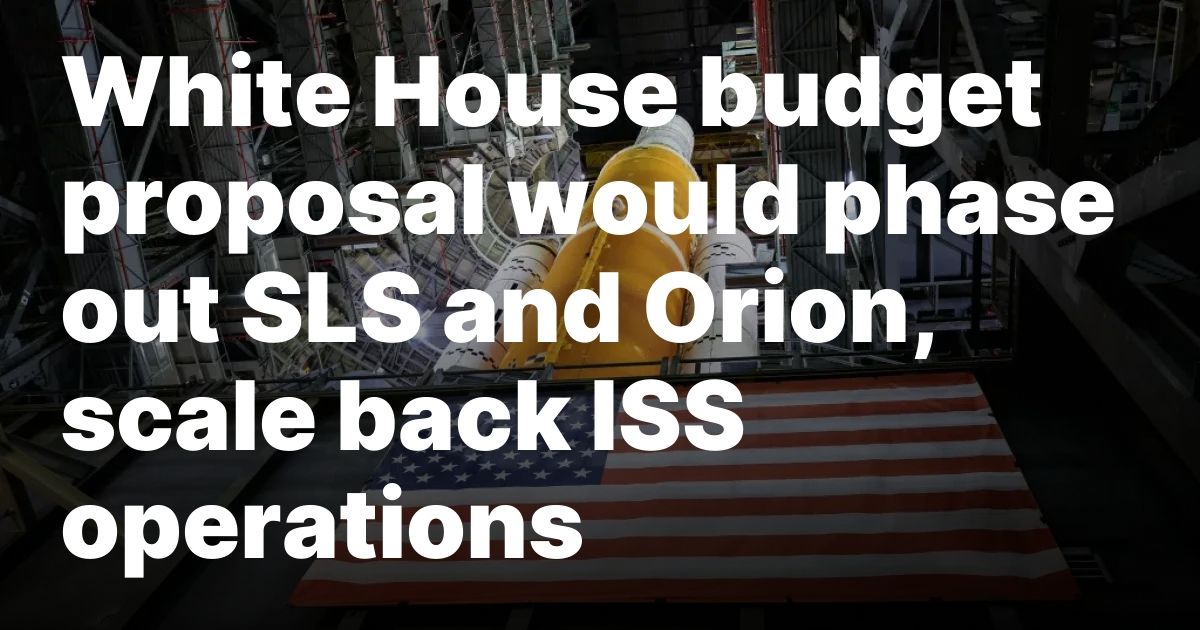
WASHINGTON — The White House is proposing major changes to NASA in its fiscal year 2026 budget request, seeking to phase out the Space Launch System rocket and Orion spacecraft as well as reduce operations of the International Space Station as part of one of the largest proposed cuts in agency history.
The White House’s Office of Management and Budget (OMB) released a top-level budget proposal for fiscal year 2026 May 2. The so-called “skinny” budget includes overall funding levels and some details, but without the same level of detail as a full budget proposal. The ful budget is expected in late May.
For NASA, the skinny budget requests just $18.8 billion for the agency, a cut of nearly 25% from the $24.9 billion the agency received in the full-year continuing resolution for fiscal year 2025.
“This proposal includes investments to simultaneously pursue exploration of the Moon and Mars while still prioritizing critical science and technology research,” acting NASA Administrator Janet Petro said in an agency statement. “I appreciate the President’s continued support for NASA’s mission and look forward to working closely with the administration and Congress to ensure we continue making progress toward achieving the impossible.”
That overall cut includes a new focus on both human missions to the moon and Mars. “The Budget refocuses National Aeronautics and Space Administration (NASA) funding on beating China back to the Moon and on putting the first human on Mars,” a fact sheet accompanying the bill states. “By allocating over $7 billion for lunar exploration and introducing $1 billion in new investments for Mars-focused programs, the Budget ensures that America’s human space exploration efforts remain unparalleled, innovative, and efficient.”
That shift would affect two of the central programs in the current Artemis architecture, the SLS and Orion. “The Budget phases out the grossly expensive and delayed Space Launch System (SLS) rocket and Orion capsule after three flights,” the budget document states. “The Budget funds a program to replace SLS and Orion flights to the Moon with more cost-effective commercial systems that would support more ambitious subsequent lunar missions.”
Jared Isaacman, nominee to be NASA’s administrator, committed to the current Artemis architecture in his April 9 confirmation hearing as the fastest way to return humans to the moon. However, he said at the hearing and in subsequent questions for the record he would support moving away from those systems in the future.
“The commercial launch market is more capable than ever, with numerous American providers investing in heavy-lift capabilities,” he wrote in response to a question for the record from Sen. Ted Cruz (R-Texas), chairman of the Senate Commerce Committee. “NASA should take advantage of that competition and eventually refocus its world-class talent and infrastructure on what no one else is doing: developing the next generation of exploration technologies.”
The budget would also cancel the lunar Gateway, the international facility orbiting the moon that would be part of later Artemis missions. The budget did not give a reason for doing so, but the proposed cancellation could upend cooperation with Europe, Japan, Canada and the United Arab Emirates, who have agreed to contribution Gateway elements in exchange for seats for their astronauts on missions to the moon.
“I am not aware of any plans to cancel Gateway,” Isaacman told Cruz in response to another written question, but added that “if such a situation arose, I would work closely with our partners—as I have done in countless complex international negotiations in my business career—to find an acceptable path forward.”
ISS, technology and science reductions
The bill would cut the budget for the International Space Station, about $3 billion for operations and transportation in 2025, by half a billion dollars.
“The Budget reduces the space station’s crew size and onboard research, preparing for a safe decommissioning of the station by 2030 and replacement by commercial space stations,” it states, but does not includes specifics on the cuts in crew size or research activities.
Crew and cargo launches to the ISS would also be reduced. “The station’s reduced research capacity would be focused on efforts critical to the Moon and Mars exploration programs.”
Isaacman told Democratic senators in written responses to questions that NASA should “ignite a thriving space economy by maximizing the remaining life and utility of the International Space Station.” That included a “need to prioritize the highest-potential science and research on the ISS that could help ‘crack the code’ on a sustainable orbital economy.”
The skinny budget confirms deep cuts in NASA science programs that leaked out in an OMB budget “passback” document to NASA three weeks ago. The only mission specifically mentioned in the bill for cancellation is Mars Sample Return, although it notes that the “gold-plated” Landsat Next program would also be restructured.
Isaacman, in a response to written questions from Sen. Maria Cantwell (D-Wash.), ranking member of the Senate Commerce Committee, said he was unaware of the proposed science cuts but added that “a ~50% reduction to NASA’s science budget does not appear to be an optimal outcome.”
The proposal cuts NASA’s space technology portfolio by about 50%. Those cuts include “eliminating failing space propulsion projects,” but does not give specifics. It would also cut unidentified programs “not needed by NASA or are better suited to private sector research and development.”
As with the first Trump administration, this budget proposal seeks to terminate NASA’s education programs, now known as STEM Engagement. “NASA will inspire the next generation of explorers through exciting, ambitious space missions, not through subsidizing woke STEM programming and research that prioritizes some groups of students over others and have had minimal impact on the aerospace workforce,” the budget document states. Those earlier efforts to cancel NASA education programs were rejected by members of both parties in Congress.
Isaacman told senators in response to written questions that he supported NASA efforts like Established Program to Stimulate Competitive Research (EPSCoR) and Space Grant. “Programs like EPSCoR are essential because they help connect students and researchers from underserved regions and institutions to the opportunities that NASA provides,” he told Sen. Jacky Rosen (D-Nev.)
Both EPSCoR and Space Grant are in the STEM Engagement budget line that the OMB proposal zeroed out.
Stay Informed With the Latest & Most Important News
Previous Post
Next Post
-
 01Two Black Holes Observed Circling Each Other for the First Time
01Two Black Holes Observed Circling Each Other for the First Time -
 02From Polymerization-Enabled Folding and Assembly to Chemical Evolution: Key Processes for Emergence of Functional Polymers in the Origin of Life
02From Polymerization-Enabled Folding and Assembly to Chemical Evolution: Key Processes for Emergence of Functional Polymers in the Origin of Life -
 03Astronomy 101: From the Sun and Moon to Wormholes and Warp Drive, Key Theories, Discoveries, and Facts about the Universe (The Adams 101 Series)
03Astronomy 101: From the Sun and Moon to Wormholes and Warp Drive, Key Theories, Discoveries, and Facts about the Universe (The Adams 101 Series) -
 04Φsat-2 begins science phase for AI Earth images
04Φsat-2 begins science phase for AI Earth images -
 05Hurricane forecasters are losing 3 key satellites ahead of peak storm season − a meteorologist explains why it matters
05Hurricane forecasters are losing 3 key satellites ahead of peak storm season − a meteorologist explains why it matters -
 06Thermodynamic Constraints On The Citric Acid Cycle And Related Reactions In Ocean World Interiors
06Thermodynamic Constraints On The Citric Acid Cycle And Related Reactions In Ocean World Interiors -
 07Binary star systems are complex astronomical objects − a new AI approach could pin down their properties quickly
07Binary star systems are complex astronomical objects − a new AI approach could pin down their properties quickly












